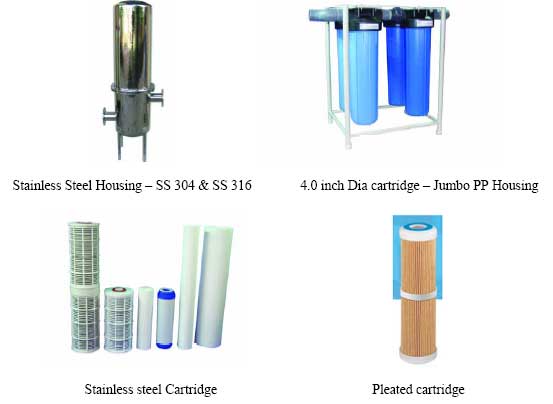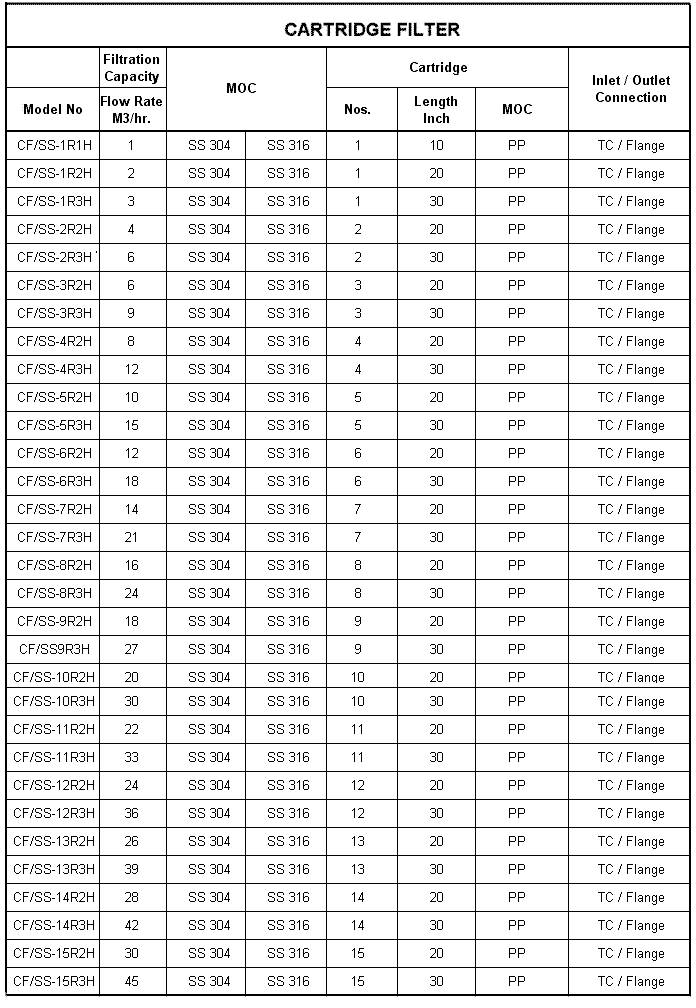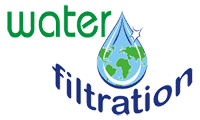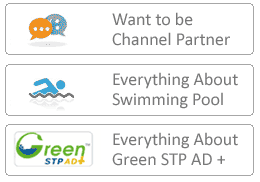Wound Cartridge Filters:
- the most common type of depth filters
- materials: natural or synthetic yards, which are wounded around a central tube or former
- numerous applications in the industry
Bonded Cartridge Filters:
- one-piece cordless construction, consisting of resin bonded fibers of solid particles
- their filtration range is between 5 to 125 micron, good chemical compatibility/flow rate
- frequent application: viscous fluids, process duties
Pleated Cartridge Filters:
- today's most common cartridge filter system
- materials: cellulose basis, resin impregnation; polyester, micro fiber glass, polypropylene
- advantages: increased surface area (up to 60 %) compared to traditional cartridge filters
Metal Fiber Cartridge filters:
- material: stainless steel fibers, connected to a mat
- used in the polymer industry
Hollow Fiber Membrane Cartridge Filters:
- for applications under 0.5 micron, for example used for the removal of aerosols. Further applications can be, for example microbiology
(filtration range down to 0.01 micron), where sterility is very important
- materials: hydrophilic polyamide/polypropylene
Applications:
• Pre RO water
• Chemicals
• Beverages
• Solvents
• Compressed air
• Cosmetics
• Alcohol





